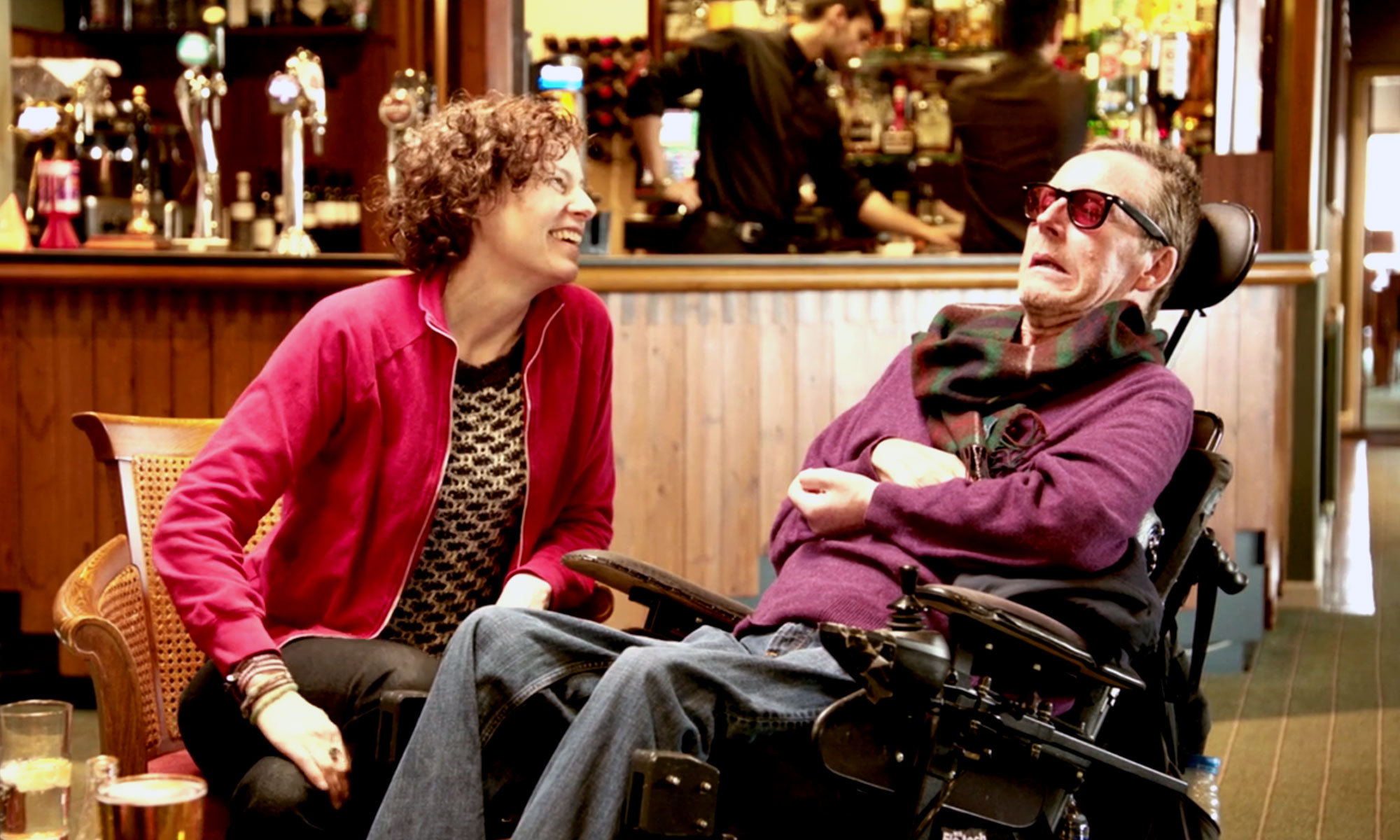
Feeling fed up I went to see my friend Al, who despite being confined to a wheelchair and unable to feed himself due to MS, is always good for a laugh.
“What’s wrong?” he asked.
“How do you know there’s anything wrong, I’ve only said ‘hello’?”
“I can tell by your aura,” he said “and the sound of your voice.” Al who has a maths/science background is not prone to daft flights of fancy, even if he did enjoy a successful career in advertising.
“Really? How’s that?”
It turns out that ever since MS caused his vision to constantly spin, he’s been able to see the energy that people give off in the form of light and as his sight is impeded he has a heightened awareness of both colour and sound: and his intuition has deepened.
“Green suits you” he said, remarking on the jumper I was wearing. “You have winter colouring.”
Brilliant. What a bonus! I’d been interested to discover what my ‘palette’ might be since a good friend had had her ‘colours done’ by a stylist for a significant amount of money. “You should do it, EK. It’ll transform your appearance and work wonders for how you feel.” But discovering how much she’d paid, I felt faint and decided to continue honing the disheveled dog-walker look.
I mentioned the money part of this to Al in case he might be missing a business opportunity, and one with a such a unique schtick; – colours and aura reading at the same time. He could clean up, I suggested, in the comfort of his own home.
“No” he laughed. “Too stressful.” He mentioned a friend who came to see him. Drives him potty, he says: “I want to shout at her – Stop wearing those colours! You look dreadful. Wear pink, it’ll suit you! But I’m so grateful that people come to see me, I don’t want to upset them. I have to be careful of what I say!”
And whilst on the subject he remembered a time he was in America for some advertising work, and someone said: “You’ve got a strange accent, where are you from?”
“Scotland.”
“Oh, really, then you must know so and so.”
“Honestly” said Al, “ I wanted to shout, ‘there are five point two million people in Scotland. Why the fuck would I know this person?’ I was just about to say so, when I thought, hang on – I do know him!” I laughed. Al continued: “He was a friend of a friend. It made me realise these co-incidences can happen and I was glad I hadn’t been rude.”
He paused. “Would you get a tissue and dab my left eye? It waters unfortunately.” “Of course” I said. And immediately dabbed his eye to my left.
“Thank you.” He said patiently. “That’s my right eye.” What an idiot.- Me. So I dabbed his left eye, realising that I’d never be missed by the nursing profession. And how frustrating it must be for Al to be reliant on other people for the smallest thing, to dab his eye, or rub his nose, which is often itchy. People raise their hands to their faces a lot without thinking about it, he said.
“What’s wrong?” he said. “You mood lifted and you were happier, now you’re sad again.” I hadn’t said anything. Indeed, I’d been laughing at more of his stories. But he knew.
What would you give your right arm for?
What is it about right arms? I’m quite attached to mine and cannot imagine life without it. Aron Ralston, the climber who chopped his off with a cheap knife after it had been trapped under a boulder for five days, said he “did not lose his arm, but gained his life back.” Al Fraser, former keen sportsman now confined to his wheel chair and without the use of any limb, remarked “Not that I need my right arm,” when discussing the paralysing affect of Multiple Sclerosis on his.
Danny Boyle made a film about Ralston (127 Hours). Al Fraser was interviewed for a Guardian podcast by me. Well ‘them’s the breaks’. But what both these men clearly share is a positive outlook, an acceptance of what needs to be done in a situation and the courage to get on and do it. Ralston’s life has expanded externally, he’s travelled continents and climbed mountains using his prosthetic arm. Al’s life has expanded internally. His field of operations may have narrowed to the confines of his wheelchair (which he can no longer operate), but his horizons are wider than ever.
Bright, funny and self deprecating, Al doesn’t possess a shred of self-pity. When I remarked it must have been a living nightmare to be confronted with life in a wheelchair, he replied, on the contrary, it was a relief to flop into it when it arrived. Getting about had become such an exhausting struggle, he welcomed the opportunity to sit down.
He doesn’t dwell on difficulty – he had three children under five when he was diagnosed eighteen years ago and hasn’t been able to hug them or his wife for most of them. Nor is it easy for him to remonstrate with their kids’ teenage behaviour because the MS affects his breathing, making it difficult for him to raise his voice. So he focuses on tone to get his point across. The producer of the podcast was so inspired by Al, he wants to give him his own show.
I thought about Al this morning when my right hand went into a spasm as I was holding the coffee pot and it dropped to the floor. I was scared, fearing imminent deterioration and did not meet the episode with much equanimity, lacking Al’s Scottish stoicism. But all was fine when I stepped out the front door with Nellie-the-wonder-dog straining at the lead twenty minutes later.
Within seconds of marching across a wide-open field of frosted grass in the cold and fabulous sunshine, a happy frame of mind returned. But it made me wonder about the affect of positive thinking on our health. Can it actually alter physiological/biological processes in our bodies? Because Al is remarkably positive and whilst this attitude must be of enormous benefit to those around him, as far as his health’s concerned this only seems to have been useful in terms of his dealing with the inevitable.
The argument goes that we have to really, really believe in our positive thoughts deep in our subconscious for them to work on our physical well-being – that whilst being positive in our conscious minds is worthwhile, it just doesn’t cut the mustard if what’s going on underneath is mired in negativity.
But that implies that everyone who’s incapacitated in some way has the power to change their situation but a) hasn’t done anything about it or b) has tried and failed, and I think that’s just wrong. It inspires a culture of blame and guilt around disease: not only have we erred in bringing it on ourselves, we’re not doing what we need to do to get better, with the commensurate drain on others and society which that implies. But in Al’s case, he doesn’t just talk positivity, he radiates it. So what’s going on? I’d like to know how much power our mind really does have when it comes to affecting our medical conditions and how much we’re simply prey to un-controllable random events, as well as what happens at the interface between the two.
I talked to a doctor friend who told me simply that those with a positive attitude and a willingness to help themselves generally have a better long-term prognosis than those who don’t. Maybe Al’s attitude is the thing that’s kept him going. So I’ll carry on trying to explore all my options with at least a consciously positive and open mind. Perhaps though, I should wade into my subconscious and see if I am indeed unknowingly wallowing in negativity and have a go at transforming it into a place of glowing positivity. I’d like to be able to take a leaf from Al’s book and then misquote from Aron Ralston’s so I can say “I got MS and I got my life back.”
Here’s the link to the podcast.
http://www.guardian.co.uk/world/audio/2011/jan/13/multiple-sclerosis-health
